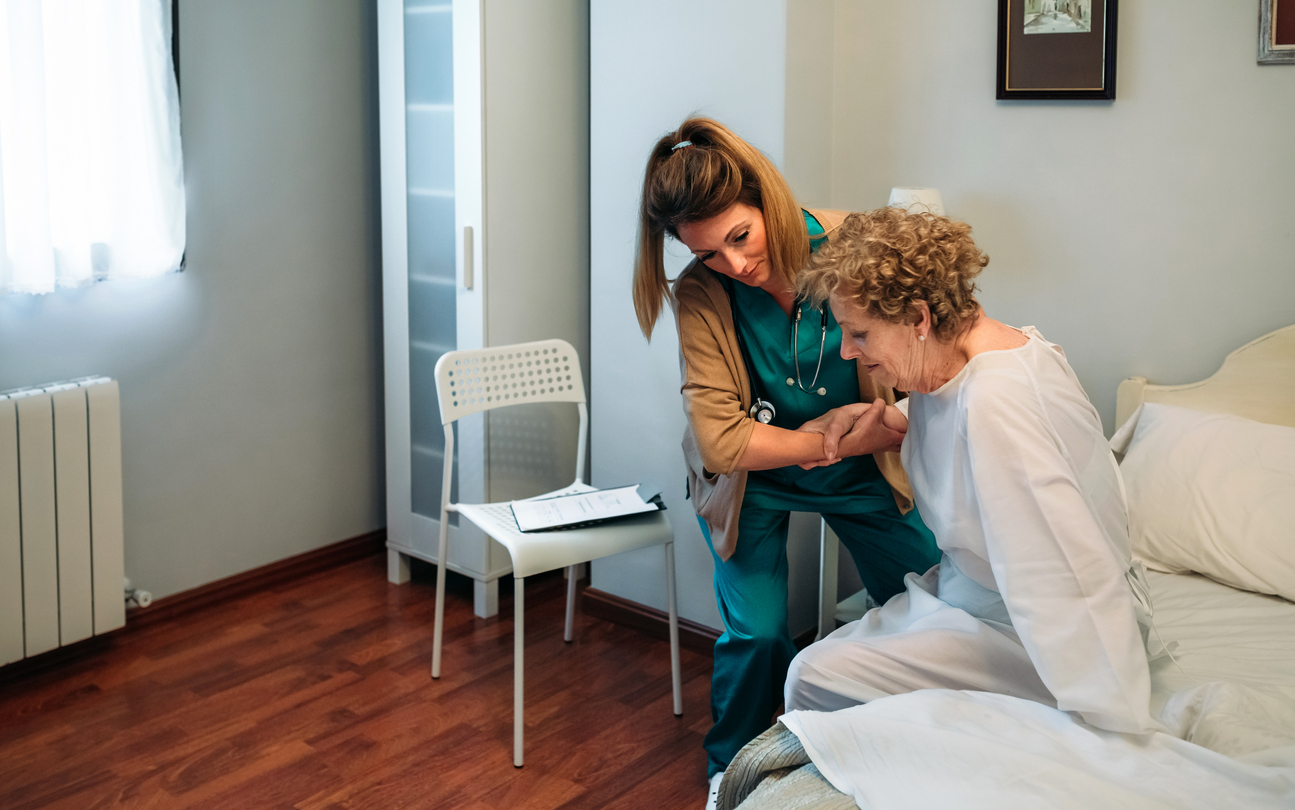Media Release
From: The BMJPeer reviewed? Yes
Evidence type: Observational
Subjects: People
Home care health workers frequently verbally abused by clients and their families
Cramped living conditions, dementia, and unpredictable work schedules key risk factors
Home care (domiciliary) health workers are frequently verbally abused by clients and their families, finds research published online in Occupational and Environmental Medicine.
Cramped living conditions, dementia, and unpredictable work schedules are key risk factors for verbal abuse, which is itself strongly linked to the risk of physical abuse, the findings indicate.
Violent behaviour has become an occupational hazard for health and social care workers, but most of the research in this area has focused on physical assault perpetrated against hospital staff or those working in other facilities.
The researchers wanted to find out how often home care (domiciliary) workers--to include nursing, hospice, and personal care aides--have to put up with verbal abuse, which can be harmful to health and lead to job dissatisfaction and burnout, say the researchers.
The domiciliary care sector is rapidly expanding as populations age. In the US alone, there were around 2.9 million home health and personal care workers in 2016, with an additional 1.2 million projected to join the workforce by 2026.
The researchers drew on 954 responses to the US Safe Home Care Survey, which was carried out as part of a larger study (Safe Home Care Project) on home care aides’ working conditions. The responses refer to a total of 3189 separate visits.
The survey collected information on home care worker demographics, health issues, and general conditions of employment as well as work practices and living conditions and behaviours for up to five clients in the preceding month.
Verbal abuse was defined as being yelled at or spoken to in an angry or humiliating tone; being made to feel bad about oneself; subjected to racial, ethnic, or religious insults/taunts; being threatened with violence.
Around one in four (206; 22%) domiciliary care workers reported at least one incident of verbal abuse by clients or their relatives during the preceding 12 months. Around half (51%) experienced more than one type of verbal abuse; one in 20 (5%) experienced all four.
Physical abuse was much less common (7.5%), but care workers experiencing verbal abuse were 11 times more likely to be subjected to physical abuse than those who had not been verbally assaulted.
Older workers above the age of 48 were less likely to be verbally abused than younger workers, which may indicate greater experience and therefore better coping and communication skills, suggest the researchers.
But after taking account of age, certain factors were significantly associated with a heightened risk of verbal abuse.
These were cramped client living conditions (52% heightened risk) and having a client with dementia (38% heightened risk) Other factors included a client with limited mobility and an unclear care plan. And domiciliary workers with predictable working hours had a 26% lower risk of being verbally abused.
This is an observational study, and as such, can’t establish cause. Reports were also collected at one point in time only, and potential links between incidents of abuse and care workers’ health were not studied.
But the researchers nevertheless suggest that their findings may actually underestimate the prevalence of verbal abuse as recall fades over time, and home care workers may make allowances for violence because of their client’s age or health condition.
“Home care workers may be especially vulnerable to impacts from verbal abuse, as the isolated nature of their jobs and requirements of client privacy leave them with fewer resources for social support that can help moderate the stress response,” they write. “Approaches to reducing it should be a priority for [their] employers,” and could also benefit clients, they add.


